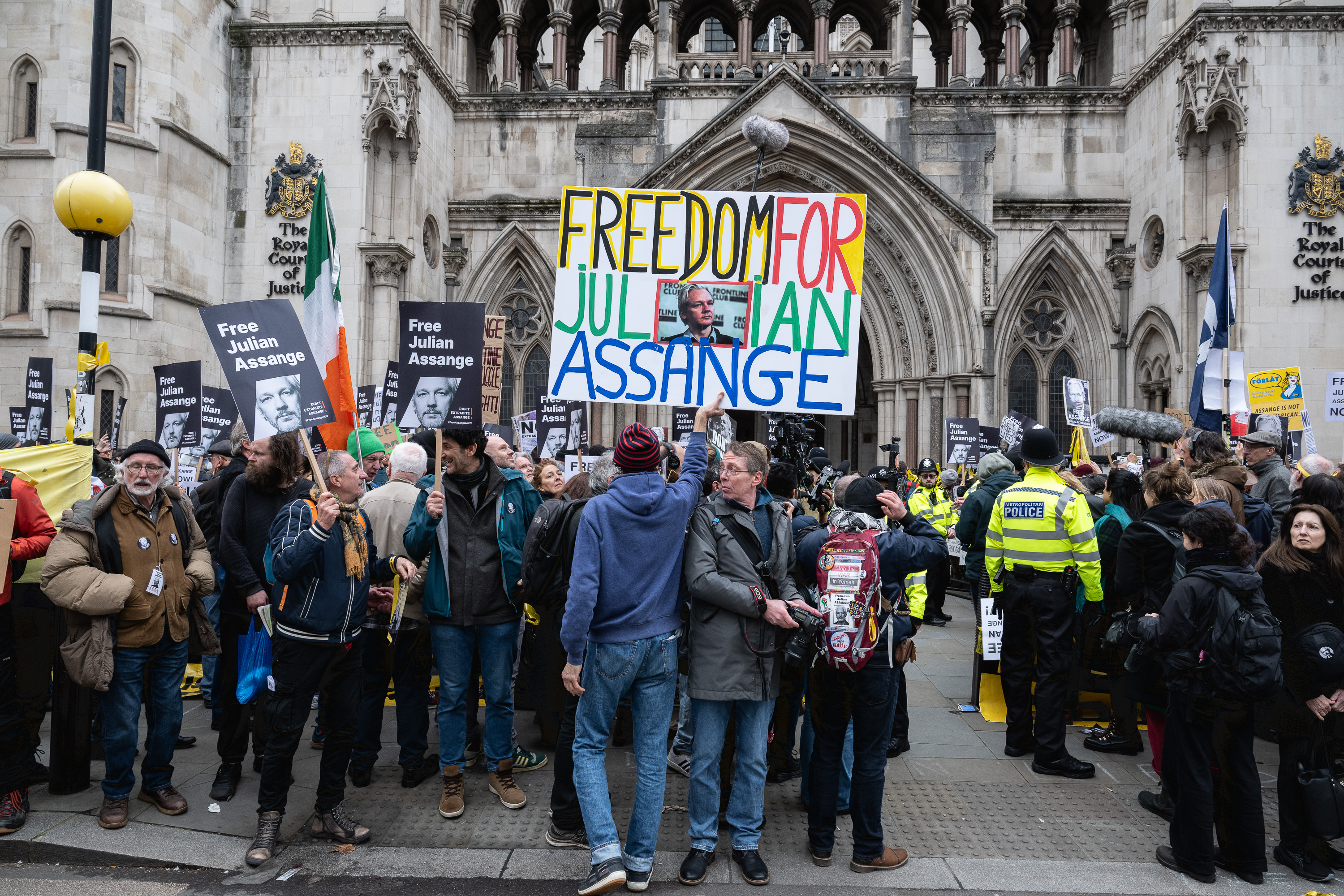Assange Court Report: February 20 - afternoon

If extradited, Assange could face death penalty, court hears
“The press should be able to publish what it knows,’” Mark Summers KC said at the outset of this afternoon’s court session, arguing that the original judge in the case had made a fundamental mistake by underrating the novelty and danger of the US prosecution of WikiLeaks Publisher Julian Assange.
Prosecution of a journalist and publisher under the US Espionage Act, argued Summers, was so unexpected and unusual that it represented a breach of Article 7 of the European Convention of Human Rights, which protects individuals from arbitrary or unpredictable charges.
The danger of the Assange prosecution, Summers went on to argue, to Article 10 (freedom of expression) rights is fundamental. He pointed out that the lower court judge had heard evidence from authoritative figures regarding the practice of obtaining and releasing classified information in the United States, nothing terribly unusual in journalistic terms, with no prosecution for such acts. Considering this, the prosecution of the WikiLeaks founder as a publisher “crosses new legal frontiers.”
Summers then analysed the relevance of Article 10 of the European Convention of Human Rights in the case. Importantly, he noted that the case law of the European Court of Human Rights (ECtHR) in Strasbourg – to which this extradition case may be appealed in due course – regarding whistleblowers had evolved a great deal over the past decade and that UK law had not caught up with this.
He argued that, if the case of WikiLeaks source Chelsea Manning had come before it today, the Strasbourg court would likely have recognised her as a whistleblower, deserving of legal protections. Publishing leaked national security information would be legal because it is “protected by universally recognised principles of free speech,” he said.
Running through some of the criteria the ECtHR has employed in important whistleblowing cases that have come before it in recent years, he argued that Chelsea Manning was ‘conscience driven’, and exposing state criminality is ‘at the highest level of public interest.’ If Chelsea Manning would be recognised as a whistleblower under current Article 10 case law, it should be clear that publication of those disclosures would also be protected.
Judge Dame Victoria Sharp interjected by asking if he had supporting case law court for whistleblower protection instances where the names of government sources had been revealed, given the publication of unredacted cables in this case. Mark Summers KC responded that the ECtHR would likely make a context specific judgement on this and that it had been ‘a glaring legal error’ from the District Judge not to balance the risk of harming people with the public interest in disclosing information about tortures, extrajudicial imprisonments, and war crimes.
Edward Fitzgerald KC then rose to present the final part of the appeal arguments, which focused on the ability of Julian Assange to receive a fair trial in the US. Citing statements supplied to the lower court by Gordon Kromberg, a prosecutor in the Eastern District of Virginia, where Assange has been indicted, Fitzgerald said “the US government has argued that Julian would have no protection under the First Amendment of the US Constitution.”
Judge Sharp interjected again to refer to the diplomatic assurances given by the US Government to the effect that Assange might eventually be able to be transferred to Australia to serve any sentence. Fitzgerald reminded her that, for that to happen, there is a requirement of “remaining on pre-trial remand”, and Assange would have had to have exhausted all his possible appeals, even if Australia were happy to receive him.
Attention then turned to issues that, Mr Assange’s legal team argued, the UK Home Secretary had not taken into account in her decision to allow the extradition to go ahead. These included the potential for additional charges to be laid on Mr Assange once he arrived in the US and the possibility that Mr Assange may be ‘subject to a death penalty’.
Mark Summers referred to the fact that Chelsea Manning had been charged – though not convicted on a treason charge (“Aiding the Enemy”) and explained that, consequently, Assange could conceivably be charged with aiding treasonous acts, a charge that would carry the death penalty. As such “extradition which exposes a defendant to the death penalty is prohibited in all circumstances by section 94 of the UK-US extradition treaty.”
Mr Justice Johnson then asked if the death penalty issue could be addressed by the existing diplomatic assurance. Summers KC denied this was the case.
The second day of the hearing will focus on the response to these arguments from the Government of the United States and the UK Home Office.
The case continues.